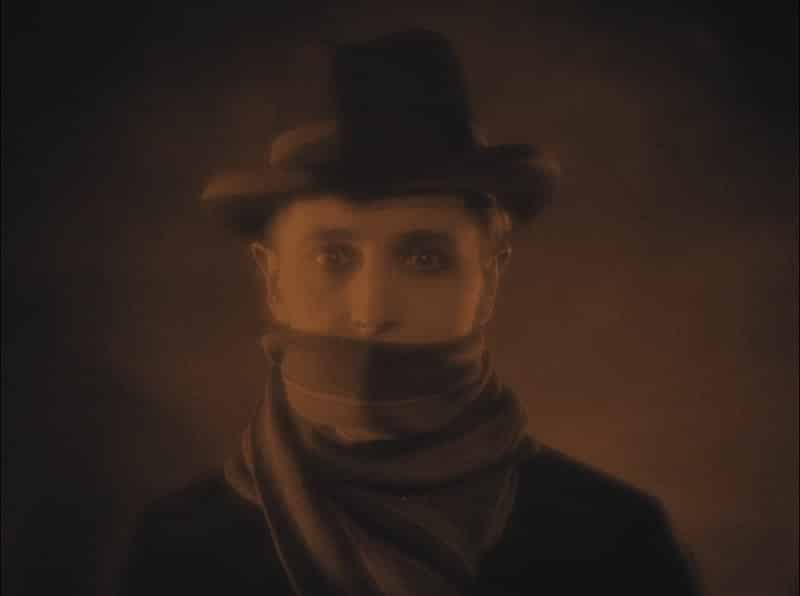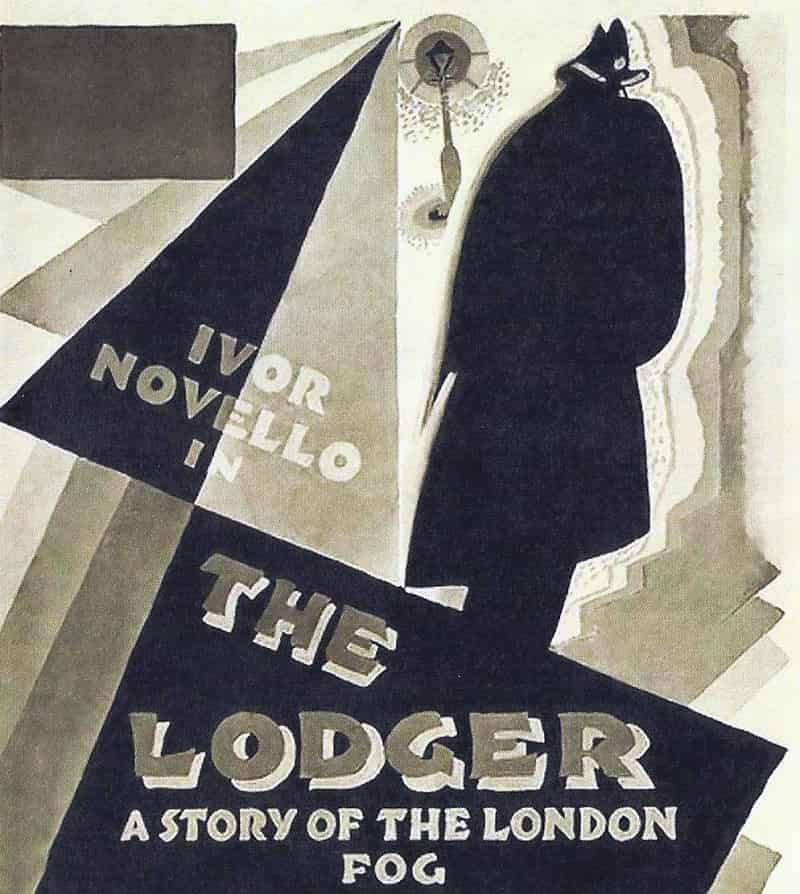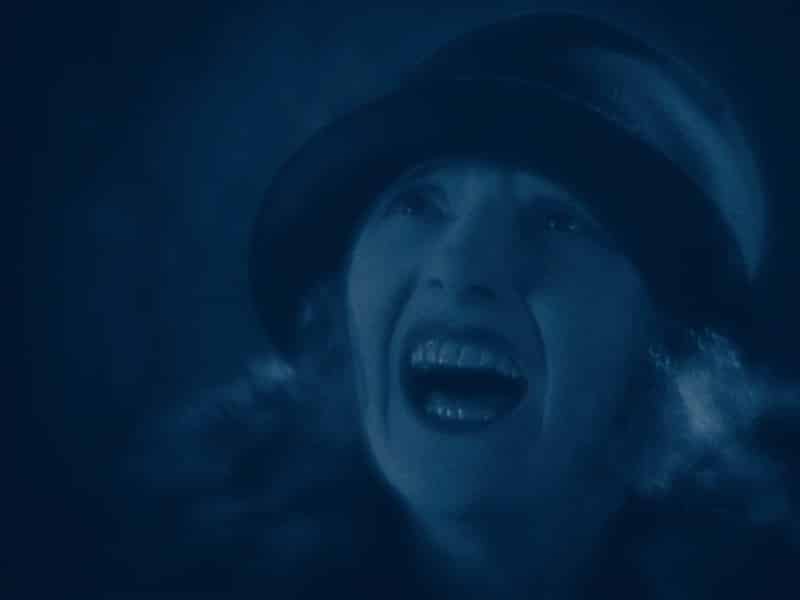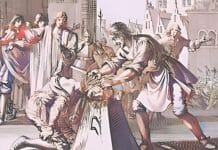A Jack the Ripper-styled killer is on the loose in London, as RICHARD PHILLIPS-JONES looks at early Alfred Hitchcock classic, The Lodger.

TITLE: The Lodger
RELEASED: 14 February 1927
DIRECTOR: Alfred Hitchcock
CAST: Marie Ault (The Landlady), Arthur Chesney (her Husband), June Tripp (Daisy, a mannequin), Malcolm Keen (Joe, a police detective), Ivor Novello (The Lodger)
WRITER: Eliot Stannard (from the novel by Marie Belloc Lowndes)
The Lodger 1927 Review
Although Alfred Hitchcock’s influence on the horror genre is immeasurable, the director made very few bona fide horror films. General wisdom would dictate that he only really made two: Psycho (1960) and The Birds (1963).
I would like to offer two further examples for your consideration, however. They act as interesting bookends in his career, since one was an early work and the other was his penultimate film. And yet these two films are tied by common bonds: Both are set in London, and deal with serial killers at large in the city, bearing the heavy influence of Jack the Ripper.
Frenzy (1972) marked something of an Indian summer in the director’s career, an affectionate farewell to the London of his youth which was fast disappearing, but that London was very much alive and well when Hitchcock embarked on The Lodger during 1926.
Based on the novel by Marie Belloc Lowndes, the film begins with a young lady’s body being discovered on the embankment at the River Thames. The death is the work of a killer calling himself The Avenger, already the perpetrator of several slayings, and with a triangular symbol on paper as his calling card.
As the press and public whip themselves into a frenzy, a mysterious stranger takes a room in a local boarding house, whose current inhabitants are the landlady and her husband, their daughter Daisy (a fashion model) and her boyfriend, policeman Joe.
Initially thinking the new lodger somewhat eccentric, the landlady becomes suspicious when another murder takes place whilst the lodger is out of the house. She becomes even more concerned when it seems that a romance might be blooming between the lodger and Daisy…

Throughout The Lodger there are several of what would become regular motifs in Hitchcock’s work: an ineffectual police officer, the possible hounding of the wrong man, the classic blonde heroine, the director’s cameo appearance (he can be seen in the newsroom at the beginning of the film), not to mention an underlying association between sex and murder.
There’s also an early example of Hitchcock’s liking for casting actors against type. Ivor Novello was much more a matinee-idol in the eyes of the audience of the time, so casting him as a possible killer might have been considered risky, indeed too risky for Gainsborough Pictures who imposed some compromises on the finished product.
Whilst not as pronounced as in his later work, the director’s trademark touches are pretty much present and correct. When one considers that he was a mere 27 years old when shooting commenced, it’s astonishing that this looks like the work of a far more experienced film maker.
A recent trip to Germany had clearly made its mark, with a clear expressionist influence apparently inspired by watching F.W. Murnau (of Nosferatu fame) at work. Particularly memorable was the image, shot from below through a glass floor, of the lodger restlessly pacing up and down in his room.
Whilst it might be somewhat fanciful to refer to The Lodger as a fledgling slasher film (and to be fair, you could only get away with so much in 1927), there is clearly a connecting line between the Whitechapel murders and the modern horror movie which takes in this fine film along its route. That the director considered it the first proper “Hitchcock” movie is perhaps unsurprising, and on those grounds alone The Lodger is arguably one of the most important British films ever made. For any serious scholar of horror movies, this is essential viewing.

TRIVIA NOTES: Hitchcock had wanted a more ambiguous climax (in keeping with the novel), where the audience would be uncertain of the lead character’s guilt or innocence, but was overruled. The director vowed to have more control over his films in the future.
The film was remade with sound in 1932 (released in the US as The Phantom Fiend), again with Ivor Novello in the lead. Alfred Hitchcock was invited to direct, but declined – Maurice Elvey directed. An entertaining enough early talkie (with an altered ending), it nonetheless failed to match the mastery and fluidity of the 1927 film, and also failed to match its box office success.
Hitchcock himself later floated the possibility of remaking The Lodger in Hollywood for 20th Century-Fox. The studio would eventually make the film with John Brahm directing – you can read more on that 1944 version here.
Tell us your views on The Lodger 1927 in the comments section below!







